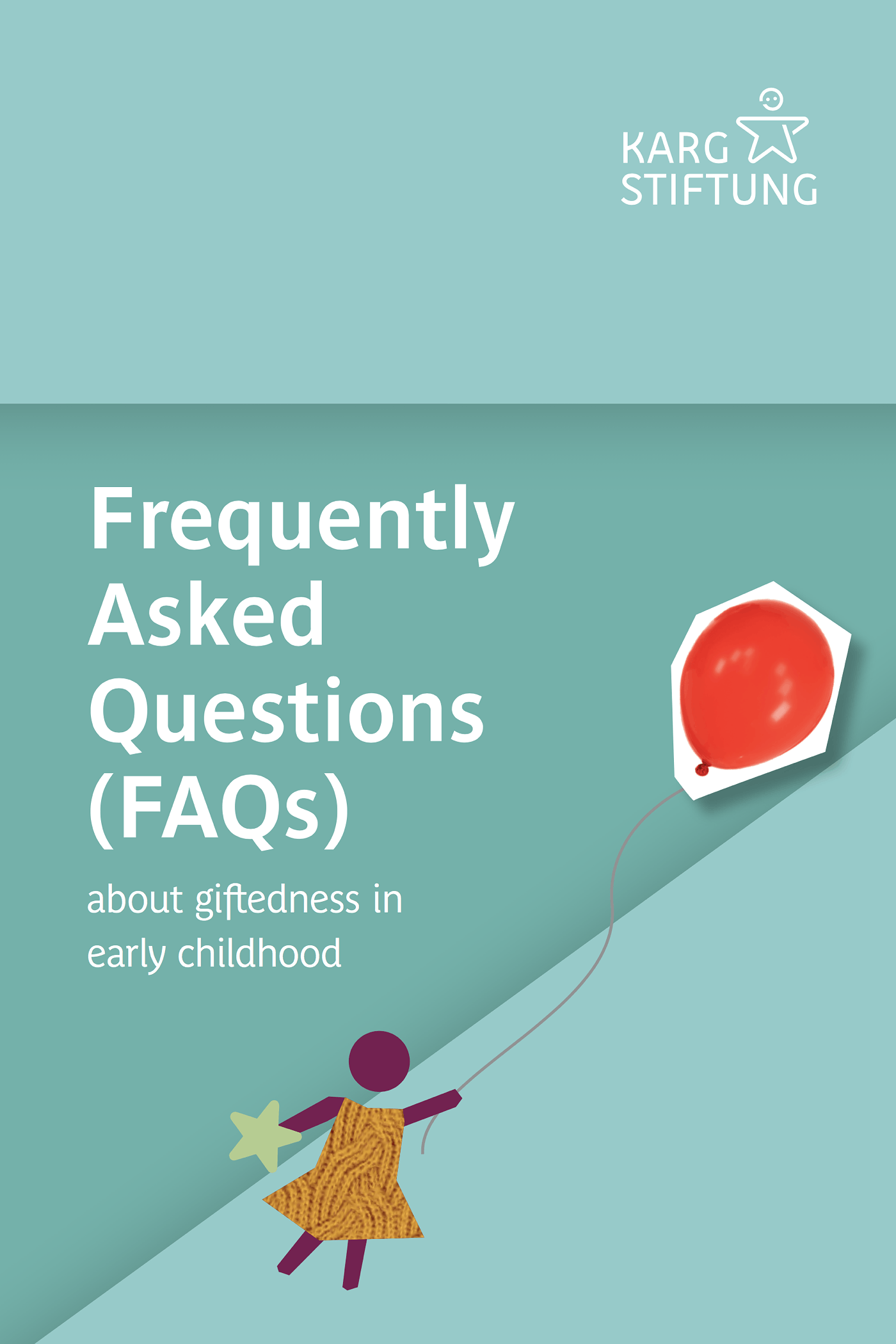Frequently Asked Questions (FAQs) about giftedness in early childhood
What considerations are important for the transition from the Kita setting to elementary school?
Children with a high cognitive ability learn easily and quickly and often show an interest in reading, writing, and arithmetic at an early age. Thus, the question of the “right” time to start school arises more frequently for these children than for their same-age peers.
If the child is enrolled in school too early, he or she may not yet have the necessary social-emotional skills to cope successfully with the new situation. If children enter school too late, they are at risk of being insufficiently challenged right from the start. This is why parents, Kitas, and primary schools should focus the same amount of attention on the school transition process for gifted children as they do for children with developmental delays.
It is therefore important that the Kitas and primary schools share information about children’s learning and developmental histories, as well as about their interests and needs. It is essential that parents are fully involved in this process and that they consent to this exchange of information. Ultimately, it is the parents who make the final decision about the timing of their child’s enrollment in school, and their involvement in the consultations is unquestionable. The wishes of the child should not be disregarded either, because only if the child wants to begin school will he or she be able to adapt easily to the new environment.
For a successful transition to primary school, it is important that teachers take a child’s existing knowledge, acquired skills, and high motivation to learn into account during early classroom instruction. Otherwise, there is a risk of boredom and understimulation at school, with consequences for learning motivation, emotional well-being, and academic achievement. This can, in the long term, lead to a child’s underachievement (i.e., a permanent decline in learning and performance) in school.
High-ability children can particularly benefit from educational approaches that include a flexible entry phase. In this approach, children in the first two grades attend classes together and are able to progress through them flexibly over a period of one to three years. Teachers have more flexibility to individualize children’s education than in age-grouped, single-grade classes, and they can better respond to the learning pace differences of their students. This approach, therefore, may provide an alternative to the early enrollment of children in school.

